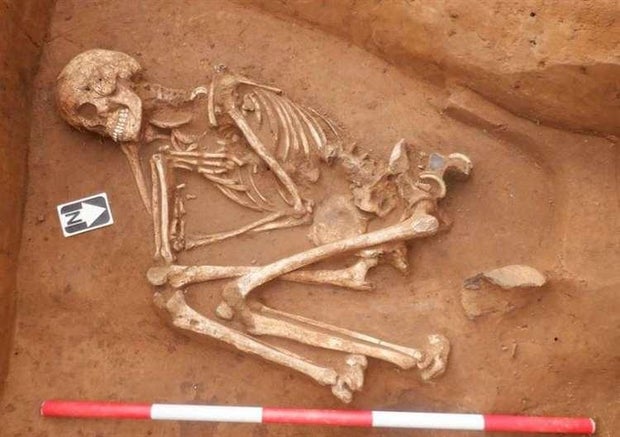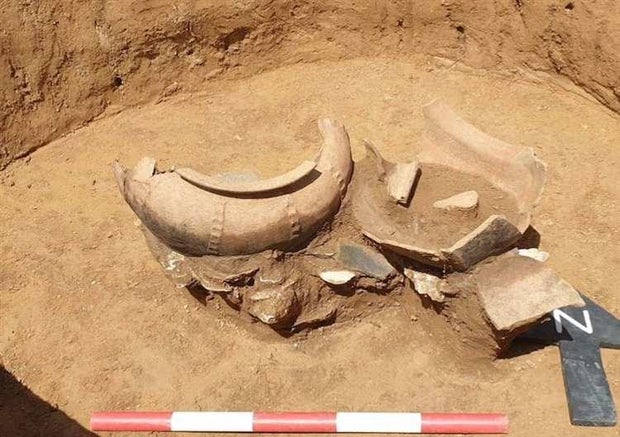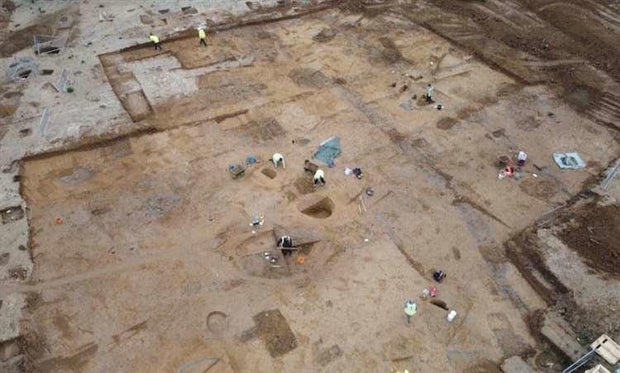Skeletal remains and skull fragments of two Bronze Age women have been discovered on a construction site in the United Kingdom.
Their remains were discovered in Kent at a planned building site for 41 houses, along with animal bones, pottery and traces of a Roman road, while a required archaeological survey was underway. the BBC first reported.
One of the women, approximately 30 to 35 years old, was found squatting, according to the report. The position has been documented from the later Neolithicor approximately 5,500 to 4,700 years ago, and before the start of the Bronze Age, according to funerary archeology experts.
Archeology SWAT
Although some archaeologists study past burial practices through excavated remains, they are unable to say with certainty why certain people were buried in certain locations.
Archeology SWAT
The skull fragments discovered at the site are believed to be from another young woman dating from 500 to 400 BC, the BBC reported, and will be archived by Kent County Council in a museum, along with other new discoveries.
Previous discoveries in England have led researchers to believe that Bronze Age Britons used various methods to mummify the deadincluding temporarily placing them in bogs, smoking them over a fire, or harvesting their organs after death.
Archeology SWAT
These new discoveries of Bronze Age remains and artifacts may offer researchers greater insight into the era when humans first explored the use of metal for tools, weapons, jewelry and for ceremonial purposes – and marked a time when farming became more widespread in and around Kent. a county in the south-east of England.




